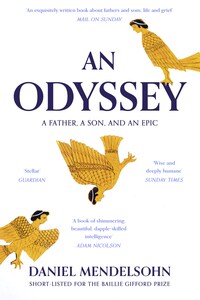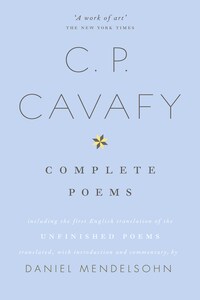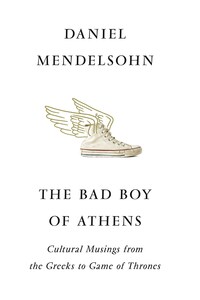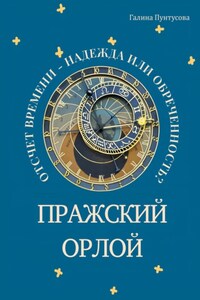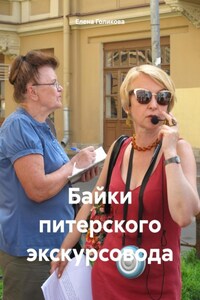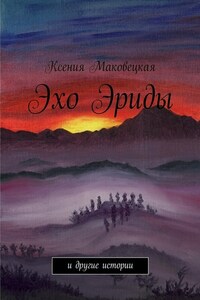William Collins
An imprint of HarperCollinsPublishers
1 London Bridge Street
London SE1 9GF
www.WilliamCollinsBooks.com
This eBook first published in Great Britain by William Collins in 2017
Copyright © 2017 by Daniel Mendelsohn
Cover illustration © Ael / Alamy Stock Photo
Daniel Mendelsohn asserts the moral right to be identified as the author of this work
A catalogue record for this book is available from the British Library
All rights reserved under International and Pan-American Copyright Conventions. By payment of the required fees, you have been granted the non-exclusive, non-transferable right to access and read the text of this e-book on-screen. No part of this text may be reproduced, transmitted, down-loaded, decompiled, reverse engineered, or stored in or introduced into any information storage and retrieval system, in any form or by any means, whether electronic or mechanical, now known or hereinafter invented, without the express written permission of HarperCollins
Source ISBN: 9780007545124
Ebook Edition © September 2017 ISBN: 9780007545148
Version: 2018-05-03
One January evening a few years ago, just before the beginning of the spring term in which I was going to be teaching an undergraduate seminar on the Odyssey, my father, a retired research scientist who was then aged eighty-one, asked me, for reasons I thought I understood at the time, if he might sit in on the course, and I said yes. Once a week for the next sixteen weeks he would make the trip between the house in the Long Island suburbs where I grew up, a modest split-level in which he still lived with my mother, to the riverside campus of the small college where I teach, which is called Bard. At ten past ten each Friday morning, he would take a seat among the freshmen who were enrolled in the course, seventeen- or eighteen-year-olds not even a quarter his age, and join in the discussion of this old poem, an epic about long journeys and long marriages and what it means to yearn for home.
It was deep winter when that term began, and when my father wasn’t trying to persuade me that the poem’s hero, Odysseus, wasn’t in fact a “real” hero (because, he would say, he’s a liar and he cheated on his wife!), he was worrying a great deal about the weather: the snow on the windshield, the sleet on the roads, the ice on the walkways. He was afraid of falling, he said, his vowels still marked by his Bronx childhood: fawling. Because of his fear of falling, we would make our way gingerly along the narrow asphalt paths that led to the building where the class met, a brick box as studiedly inoffensive as a Marriott, or up the little walkway to the steep-gabled house at the edge of campus that for a few days each week was my home. To avoid having to make the three-hour trip twice in one day, he would often spend the night in that house, sleeping in the extra bedroom that serves as my study, stretched out on a narrow daybed that had been my childhood bed—a low wooden bed that my father built for me with his own hands when I was old enough to leave my crib. Now there was something about this bed that only my father and I knew: it was made out of a door, a cheap hollow door to which he’d screwed four sturdy wooden legs, securing them with metal brackets that are as solidly attached today as they were fifty years ago when he first joined the steel to the wood. This bed, with its amusing little secret, unknowable unless you hauled off the mattress and saw the paneled door beneath, was the bed on which my father would sleep that spring semester of the Odyssey seminar, not long before he became ill and my brothers and sister and I had to start fathering my father, anxiously watching him as he slept fitfully in a series of enormous, elaborately mechanized contraptions that hardly seemed like beds at all, whirring noisily as they inclined and declined, like cranes. But that came later.
It used to amuse my father that for a long time I divided my time among so many different places: this house on the rural campus; the mellow old home in New Jersey where my boys and their mother lived and where I would spend long weekends; my apartment in New York City, which, as time passed and my life expanded, first to include a family and then to teach, had become little more than a pit stop between train trips. You’re always on the road
